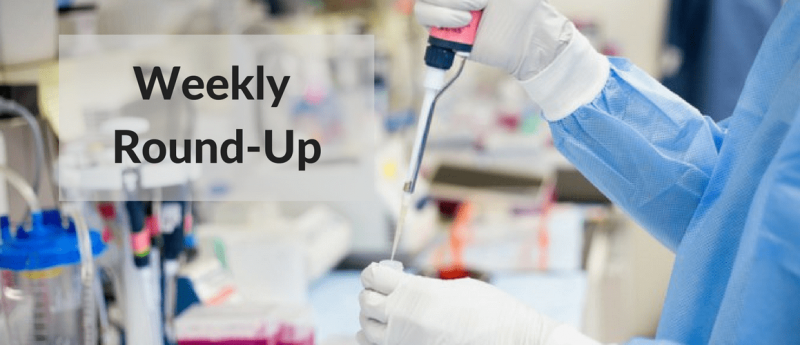Cell therapy weekly: cord blood for autism and promising gene therapy safety data

This week: first double-blind crossover study of children with autism demonstrates improvement after cord blood treatment and Celgene commences Juno buy-out.
The news highlights:
Autologous cord blood demonstrated to be safe and lead to improvement in children with autism
Celgene commences tender offer for Juno Therapeutics
First-in-man AAV9-based gene therapy found to be well tolerated in patients with Sanfilippo syndrome
Autologous cord blood demonstrated to be safe and lead to improvement in children with autism
In research funded by the Cord Blood Registry and published in Stem Cells Translational Medicine, treatment of autistic children with their own newborn cord blood was found to be safe and led to improvements in test scores for socialization.
“The Vineland Adaptive Behavior Scale for Socialization, one of the tests commonly used to measure real-world functional abilities, showed significant improvement after 12 weeks of cord blood treatment over placebo,” explained primary investigator Michael Chez, Sutter Neuroscience Institute (CA, USA). However, when correcting for possible statistical chance when looking at many outcome variables, this observed significance no longer reached significance, particular as the pilot research study only looked at 30 patients.
Celgene commences tender offer for Juno Therapeutics
Celgene Corporation (UK) has commenced their tender offer for Juno Therapeutics (WA, USA) at US$87 per share. The acquisition will position Celgene as a leader in cellular immunotherapy and accelerate Juno’s development pipeline.
Speaking in an earlier press release, Mark J. Alles, Celgene’s Chief Executive Officer commented: “The acquisition of Juno builds on our shared vision to discover and develop transformative medicines for patients with incurable blood cancers. Juno’s advanced cellular immunotherapy portfolio and research capabilities strengthen Celgene’s global leadership in hematology and adds new drivers for growth beyond 2020.”
First-in-man AAV9-based gene therapy found to be well tolerated in patients with Sanfilippo syndrome
Abeona Therapeutics Inc. (TX, USA) has reported promising preliminary safety and biopotency data for ABO-101, their gene therapy for mucopolysaccharidosis type IIIB (MPS IIB). This genetic disorder leads to neurocognitive decline and loss of speech and mobility. No adverse events were reported after 30 days at an intravenous dose of 2E13vg/kg and ABO-101 has been granted Rare Pediatric Disease Designation by the FDA, and Orphan Product Designation by both the FDA and the EMA.
“MPS IIIB is a devastating and progressive lysosomal storage disease with no approved treatment options. The first patient treated with ABO-101 has demonstrated that the systemic AAV gene transfer is well-tolerated, and the preliminary evidence of biopotency in the CNS and periphery is very encouraging,” stated Kevin M. Flanigan, principal investigator and Director of the Center for Gene Therapy at Nationwide Children’s Hospital and Professor of Pediatrics and Neurology at The Ohio State University College of Medicine (both OH, USA).
“We are especially pleased to see reductions in several key biopotency markers, including the reductions in cerebral spinal fluid, urine and plasma heparan sulfate and normalization of plasma NAGLU enzyme activity at days seven, 14 and 30 post-transfer.”
For more weekly cell therapy news, read previous editions of the cell therapy weekly.